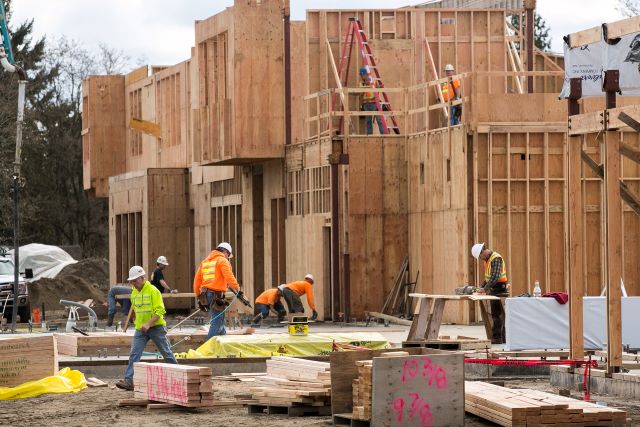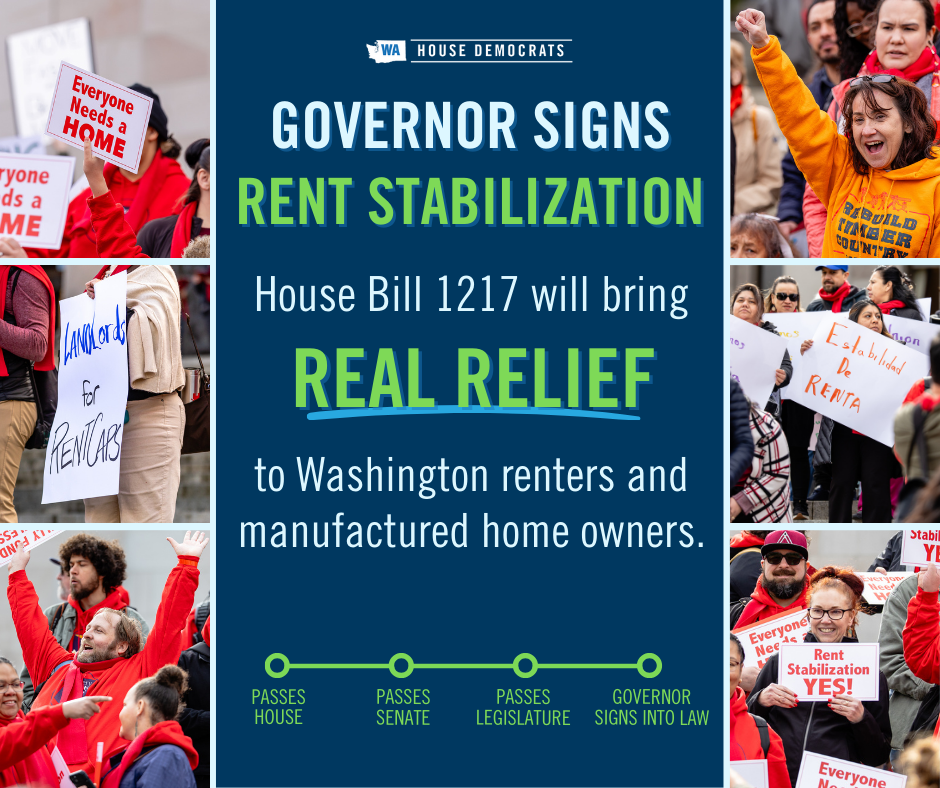Friends and neighbors,
The cost of living is a major challenge facing our families. Inflation caused by tariffs and other factors is hitting our bank accounts hard. A major driver of our cost of living is the expense of keeping a roof over our heads.
Washington is lagging behind its housing needs by 250,000 units, and we need to build a million units in the next 15 years to keep up with demand. At the same time, some landlords have raised rents far beyond inflation, contributing to the continued growth in the number of our neighbors who are without homes. Not only is this morally wrong, but it also affects our economies and hurts our state budgets through increased caseloads and decreased revenue.
Seven years ago, we started to address the housing crisis in three ways: increasing supply, stabilizing housing and rent, and supporting those who still cannot afford housing.
We have made major progress in all of these areas. Since 2018, we have passed 40 different bills aimed at increasing middle housing and low-income housing, precisely the types of housing our state lacks. These policies include:
- Requiring more density and affordability around transit infrastructure (HB 1491).
- Expanding the use of Accessory Dwelling Units (HB 1337).
- Allowing lot splitting in certain circumstances (HB 1096).
- Reducing red tape to housing development (HB 1403, HB 1353, HB 1183, SB 5184, HB 2071, SB 6015, SB 5412, SB 5290, SB 5491, HB 1293, SB 5450, & HB 1085).

Owning your own home is a great path to generational wealth. That dream is out of reach to too many people. Our communities of color were systematically excluded from this through discriminatory housing practices like redlining. Low-income families were excluded because they couldn’t afford to purchase anything other than a manufactured home, which was not counted as real property. We’ve addressed both of these issues by creating and expanding the Covenant Homeownership Program (HB 1696 & HB 1474) and by allowing owners of manufactured homes to convert their structure to real property (HB 1191).

These bills help stabilize housing by letting these families have the predictability of a mortgage. On the other hand, residential renters and manufactured homeowners were dealing with huge rent increases. This year, we passed HB 1217, which capped how much a landlord can raise rent for existing tenants. Rent increases are capped at 5% for manufactured homes and 7% plus inflation for residential renters – capped at 10%. New construction is exempted, and landlords can still increase rent when a tenant moves out with no restriction. This will stabilize rent while still encouraging new construction, creating an environment where renters won’t be forced out of their homes for no other reason than the rent got too expensive.
To support our neighbors who still can’t afford rent, the Capital Budget has invested $1.65 billion toward affordable housing and homelessness programs – including a record $1.18 billion through the Housing Trust Fund. This is a critical investment. But I am still concerned about how recent cuts to federal spending will affect low-income housing programs.
Addressing housing supply and affordability has been my priority for years. It affects our communities, economy, workforce, state budget, and the well-being of our neighbors. I am immensely proud of the amount of work we’ve been able to accomplish through cooperation and community engagement. We still have a lot of work to do, especially in making sure that jurisdictions and landlords follow the laws we have passed. Still, the state’s housing future looks brighter because of the work we’ve done.
Standing with our indigenous neighbors.
Our tribal partners continue to provide their neighbors with vital services, frequently giving aid regardless of tribal affiliation after centuries of broken treaties and atrocities. The recent comments made by Ann Coulter were reprehensible. Suggesting “we didn’t kill enough Indians” is horrifying and disgusting. This kind of rhetoric is dangerous and flies in the face of what we need to be doing, supporting indigenous nations and being the kind of neighbor to them that they have been to us. I am proud of the work we have done and look forward to finding further ways to fill the needs of the indigenous people who call our region home. I am proud to stand with our indigenous neighbors against the unconscionable speech directed toward them. Our Members of Color Caucus had a response to these comments, which you can read here: https://housedemocrats.wa.gov/mocc/2025/07/08/statement-from-the-washington-state-legislature-members-of-color-caucus-mocc-condemning-genocidal-hate-speech-and-reaffirming-our-commitment-to-native-american-justice/
We must aspire to be better than this, and we must do better by our indigenous neighbors.
Thank you for staying engaged with the legislative process. I look forward to providing you with future updates.
Sincerely,
Rep. Strom Peterson
